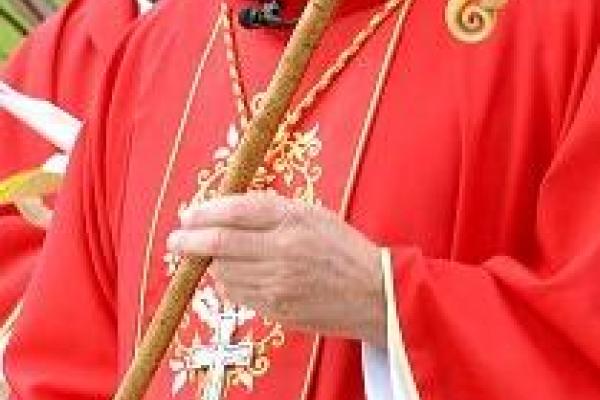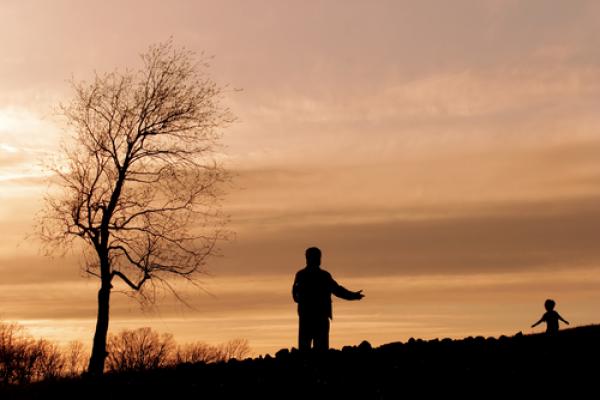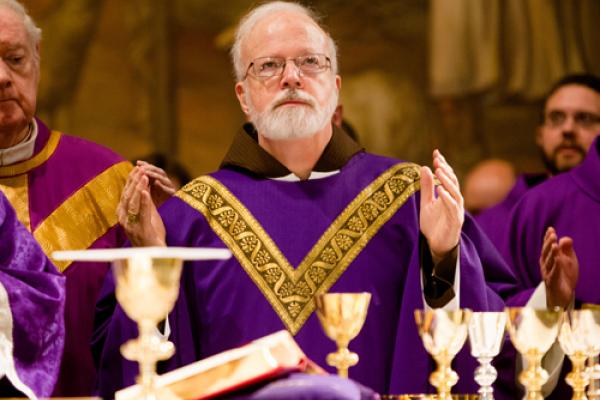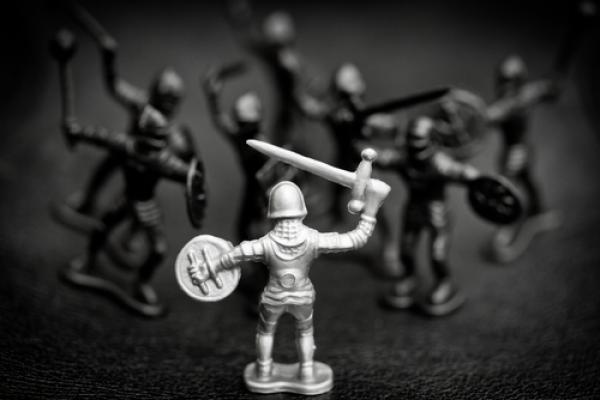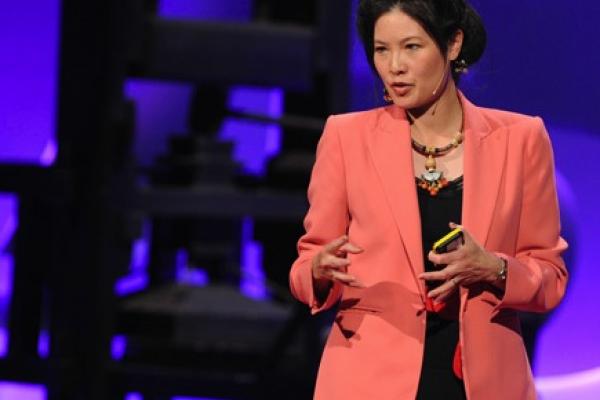Days after pulling out of the conclave to elect the next pope and vowing to fight the charges against him, disgraced Scottish Cardinal Keith O’Brien admitted Sunday to inappropriate “sexual conduct.”
O’Brien, who until a week ago was the highest-ranking Roman Catholic cleric in England and Scotland, had served as archbishop of St. Andrews and Edinburgh for the last seven years and was made a cardinal in 2003.
The human community exists in perpetual motion; migration is a constant feature of our local and global reality. According to the International Organization for Migration, the total of international migrants increased from an estimated 150 million in 2000 to about 214 million in 2010, and the number of internal migrants (those who move within the borders of a given country) is about 750 million. These relocations are often related to the harsh consequences of war, environmental destruction, and economic downturn. As a result, those engaged in migration often do so for the sake of safety and opportunity, yet these potential rewards are sought in spite of deep personal and financial risk.
While the rates appear to be on the rise, the phenomenon as a whole is by no means exclusive to the present. The New Testament passage often known as “The Parable of the Prodigal Son” includes some of the harsh realities that are often associated with migration. One can examine this well-known parable through the lenses of migration, and in doing so, we are given insights in how to more faithfully extend hospitality to such strangers.
As Luke’s Gospel (15:11-32) reminds us, the youngest of two sons asked for an early inheritance from his father, received it, and then traveled to a “distant country” where he “… squandered his property in dissolute living.” As the term “dissolute” typically intends to describe degenerate and/or sinful behavior, we often conclude that the youngest son was deeply immersed in immorality, thus we find it difficult to feel sympathy when he later falls into the depths of poverty. We tend to perceive the prodigal son as someone who got what he deserved, for as the parable seems to illustrate, not only did he waste the inheritance received from his father, but he did so through sinful choices that brought deep dishonor to his family.
Roman Catholic cardinals on Monday met for the first of a series of closed-door meetings in the run-up to the conclave that will elect the successor to former Pope Benedict XVI.
But as cardinals filed into a Vatican conference room under the gaze of dozens of cameras, church officials said 12 voting prelates still haven’t arrived in Rome, pushing back the possibility of an early start to the conclave.
It's an important question. Mark Driscoll, the famed neo-Calvinist, wants us to believe that we are God's enemies and God desired our destruction until Jesus, God's own Son, put himself in harm's way and saved us from God. Interesting theological gloss...but there's something in this I'm pondering right seriously this morning...
...What's it like to wrestle with the Divine One? You know, like Jacob did there in the desert one night. You can contend with God, can you not? Is God not then your enemy in some way? Well, perhaps your adversary? I don't know for certain if any of this language suits, but I'm pondering it because God and I are engaged in a cage match and I am mustering all the courage I have not to pull out a folding chair or some such mess knowing full well that God cheats.
On a summer night in a Western town of flat fields and hazy sunsets, a young woman stood outside a Greyhound bus with a ticket in her hand and a backpack over her shoulder. Boarding the bus, she said later, would be the hardest thing she had done in her 18 years.
Harder than saying a last goodbye to her mother, father, and five siblings that morning. Harder than the two years since as she tried to make a new life, alone, in a strange city.
Now 20, she asked to go by the name Samya. If her true identity were known, Samya believes, her family would seek her out and possibly kill her. They would certainly try to persuade her — if not force her — to come home.
Her parents, she said, think she is guilty of two serious crimes: She rejected a marriage arranged by her father, who came to the U.S. from the Middle East when Samya was an infant. And perhaps more serious to her parents: She has become an atheist.
This year marks a long list of anniversaries in our nation's long march for civil rights: We now mark 150 years since the Emancipation Proclamation; and 50 years since the Stand in the Schoolhouse Door, Martin Luther King, Jr.'s "Letter from Birmingham Jail," the March on Washington, the bombing at Sixteenth Street Baptist Church that killed four little girls, and the murder of Medgar Evers in his driveway.
In remembrance of the sacred journey, The Faith and Politics Institute's Civil Rights Pilgrimage drew more than 250 people, including 30 members of Congress, for a three-day tour of civil rights landmarks and first-hand testimonies from the movement's leaders. Throughout the pilgrimage — moving from Tuscaloosa to Birmingham to Montgomery to Selma — the delegation learned, grew, and continued the conversation together: white and black, Republican and Democrat, man and woman, senior and child. We all returned to Washington, D.C., and to our homes across the country, with a renewed sense of responsibility for the common good.
A number of events made the term 'reconciliation' mean more than the definition I had somehow created for myself over the past 30 years. Reconciliation is calling the person who beat and humiliated you 'brother.' Reconciliation is sharing a platform, sharing a deeply intertwined story — and sharing an authentic embrace — with the offspring of your parents' enemies.
[Photo Gallery at the jump.]
“They took the door off so the hyenas would get her.”
Sitting in the darkened room with thousands of others, I listened intently as the woman on stage continued. The speaker was no other than Sheryl WuDunn, the Pulitzer Prize-winning co-author of Half the Sky, and the setting was this year’s Justice Conference.
Having previously read Half the Sky, I was reminded again of the countless numbers of women who looked beyond their circumstances to overcome challenges, and change their families and communities for the better. I remembered the underlying causes of global gender inequality, and WuDunn’s urgent call in her book to empower girls and women. The solution to ending poverty lies in educating females and bringing them into the formal workforce. In that, women’s empowerment isn’t simply a good issue to promote, but part of creating a just world.
